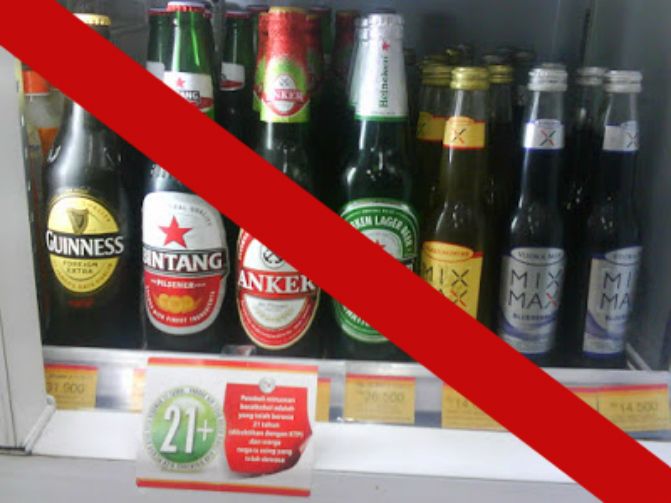The start of this month saw the closure of all 171 7-Eleven stores in Indonesia and the unemployment of around 1,000 of the convenience store chain’s workers. The reasons for the once popular chain’s demise are numerous, but many analysts noted that the national ban on selling beer at minimarkets, enacted in 2015, seriously hurt SevEl’s sales and probably tipped the scales towards making them unprofitable.
The death of 7-Eleven has given the Association of Indonesian Retail Entrepreneurs (Aprindo) reason to renew their calls for the government to review the minimarket beer ban, arguing that it is not only hurting convenience store profits but also allowing the black market for dangerous illegal alcohol to flourish while at the same time taking revenue from the government.
“If the black market will take over, it’s better to sell [alcohol] openly in places that pay taxes,” said Aprindo Chairman Roy Mandey said as quoted by Kompas.
Deaths due to illegal black market alcohol are not uncommon in Indonesia and studies have shown that they are on the rise since the minimarket beer ban was enacted.
Roy argued that the ban was not in line with the global trade modernization being pushed by President Joko Widodo’s administration and was also hurting Indonesian beer producers.
He also made the point that the original reason for the ban, which was to prevent children from purchasing alcohol, could be met with better enforcement of the pre-existing regulations making it illegal for retailers to sell alcohol to anybody under 18.
The minimarket beer ban, formally known as “Trader Ministry Regulation No. 6 of 2015 on the Control and Supervision on Procurement, Distribution and Sale of Alcoholic Beverages” was enacted by former Trade Minister Rachmat Gobel in April of that year and banned small retailers from selling alcoholic beverages containing less than 5% alcohol by volume (they were already banned from selling anything stronger).
The government later loosened the regulation by saying that regional governments could choose whether or not to follow it. But since the government never actually overturned the regulation, no region, not even Jakarta, had the stomach to deal with the controversy that would come with explicitly reversing it.
We admit, we’re beer drinkers and we’d love to see beer return to minimarkets so that they could be purchased conveniently by law-abiding adults. But much more than that, we don’t ever want to have to write an article about somebody dying from drinking illegal liquor ever again.





Reader Interactions